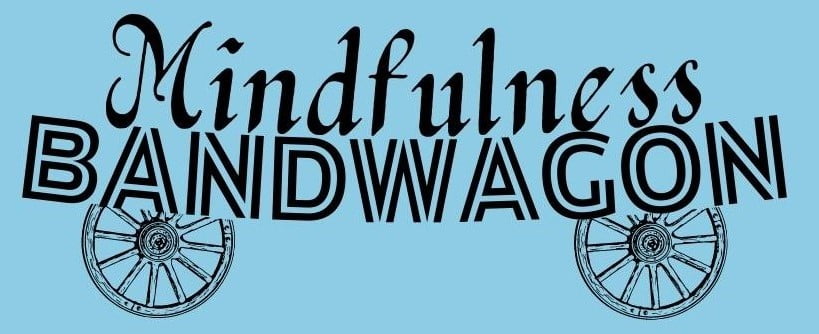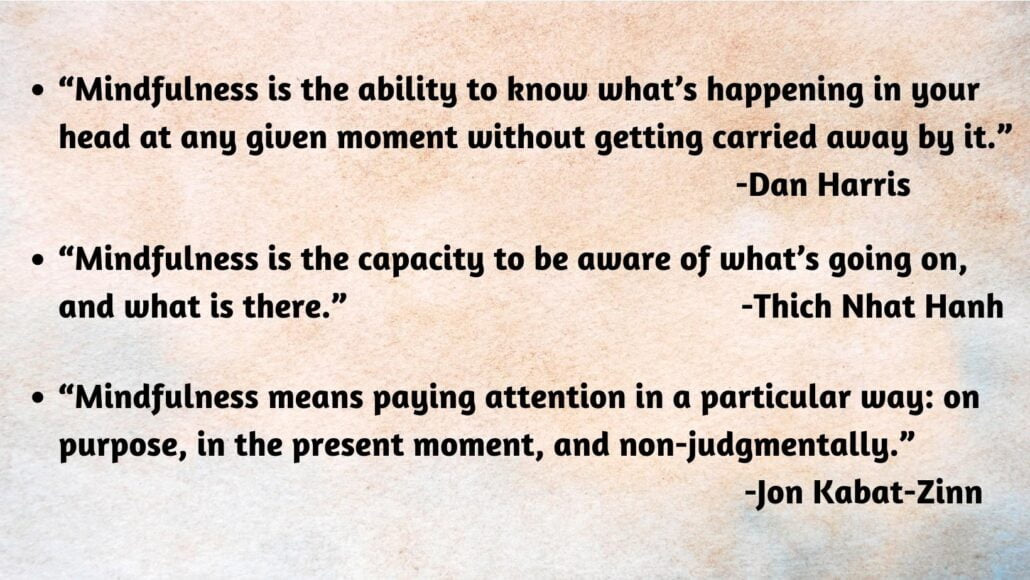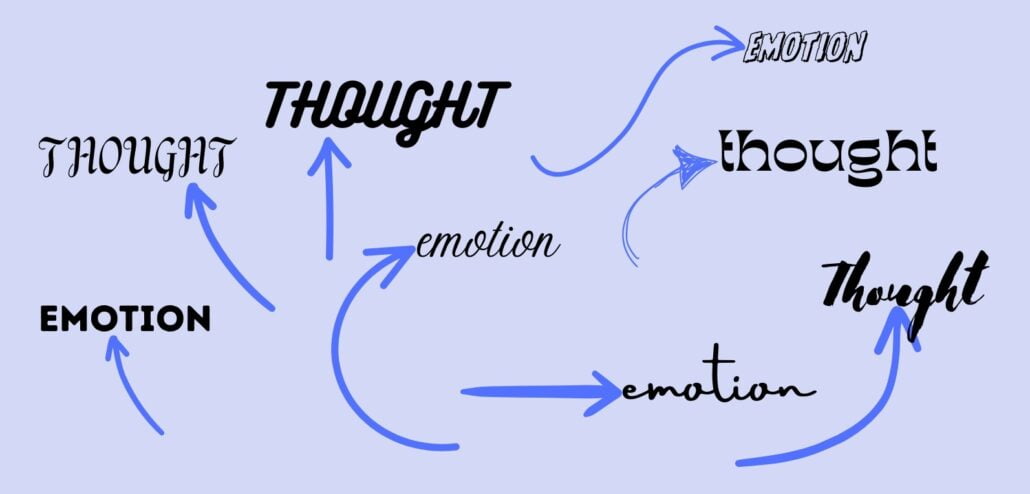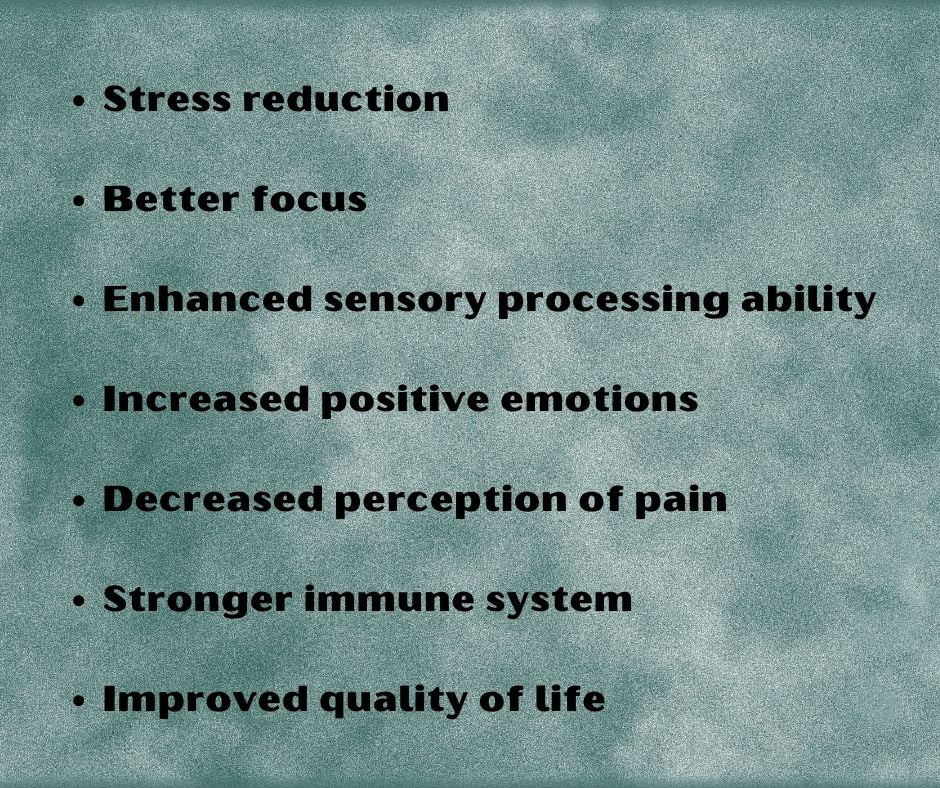Substance use disorders damage the brain – we know that. But lately, we’re seeing headlines claiming that mindfulness can reverse the damage from SUDs.

Is it true?
Should we all jump on the mindfulness bandwagon?
Shedding Light on Mindfulness
While “mindfulness” can seem like just another buzzword, that doesn’t mean we should write it off. In fact, it’s an ancient practice finally getting due diligence from the scientific community. That’s why we in the recovery field are so eager to learn the benefits for people with SUDs, and to help them gain those benefits for themselves.
But first, we need to know what mindfulness is, and what it isn’t. Here are definitions by three mindfulness experts:

So, mindfulness isn’t about doing; it’s about being. It isn’t about changing; it’s about noticing what is. It isn’t about resisting; it’s about accepting without judgment.
Interrupting Unhealthy Behaviors With Mindfulness

A person in active addiction is likely to be in the state of mindlessness – completely at the mercy of whatever thoughts, emotions, and cravings arise.
Mindfulness trains us not to react to distressing thoughts and emotions. Not that a person with an SUD has control over what’s going on in their mind, especially at first. But mindfulness trains us to note the thoughts and emotions as they arise, and then return the attention to the breath.

Researchers believe that this type of mindfulness-based intervention can strengthen the parts of the brain that are weakened by chronic substance use and create new connections, so that automatic behaviors are interrupted, making way for new, healthy behaviors.
Reducing Cravings and Relapse With Mindfulness

In one recent research study, participants who had a history of long-term opioid use spent eight weeks practicing the mindfulness technique of focusing attention on their breath. When attention drifted away and they began obsessing about drugs or other sources of stress in their lives, they simply refocused.
This training alone reduced the misuse of opioids by 45%, and participants showed continued decrease in opioid use nine months later.
Another study was structured specifically to determine whether mindfulness could help reduce cravings and prevent relapse. Researchers evaluated Mindfulness-Based Relapse Prevention, a method that was designed to show how cravings affected relapse. Those using MBRP learned techniques such as how to observe their cravings without judgment or reaction. The MBRP group had much lower rates of relapse than the control group.
Enjoying Even More Mindfulness Benefits
When looking at the vast body of scientific research conducted on mindfulness in general, the findings of almost any study show benefits for people with SUDs. For example, mindfulness can lead to:

Mindfulness directly improves brain health, emotional state, and physiological health.
Discovering Mindfulness for Yourself
Whether you’re struggling with an SUD or not, all this good press may have you interested in checking out mindfulness. Fortunately, because mindfulness is so widely practiced, it’s easy to find more resources to help you start or continue your own practice. For example, I started by using guided meditations from the app Headspace. Calm is a similar app with guided meditations, articles, videos, and other resources. Or you might be more comfortable watching YouTube videos, going to in-person classes, listening to recorded books (which you can download to your phone from your local library), or seeing a therapist or counselor.
The key is to find what works for you — what helps you to add a regular practice of mindfulness meditation to your life. Then you can begin to see the benefits for yourself!
Sources:
What is mindfulness?. Mindful Ambition. (2017, March 9). https://mindfulambition.net/mindfulness-guide/what-is-mindfulness/
Garland, E. L., & Howard, M. O. (2018, April 18). Mindfulness-based treatment of addiction: Current state of the field and envisioning the next wave of Research – Addiction Science & Clinical Practice. BioMed Central. https://ascpjournal.biomedcentral.com/articles/10.1186/s13722-018-0115-3
News, N. (2022, October 22). Mindfulness Training Provides a Natural High. Neuroscience News. https://neurosciencenews.com/mindfulness-addiction-21699/
Witkiewitz, K., Lustyk, M. K. B., & Bowen, S. (2013). Retraining the addicted brain: A review of hypothesized neurobiological mechanisms of mindfulness-based relapse prevention. Psychology of Addictive Behaviors, 27(2), 351–365. https://doi.org/10.1037/a0029258



1 comment